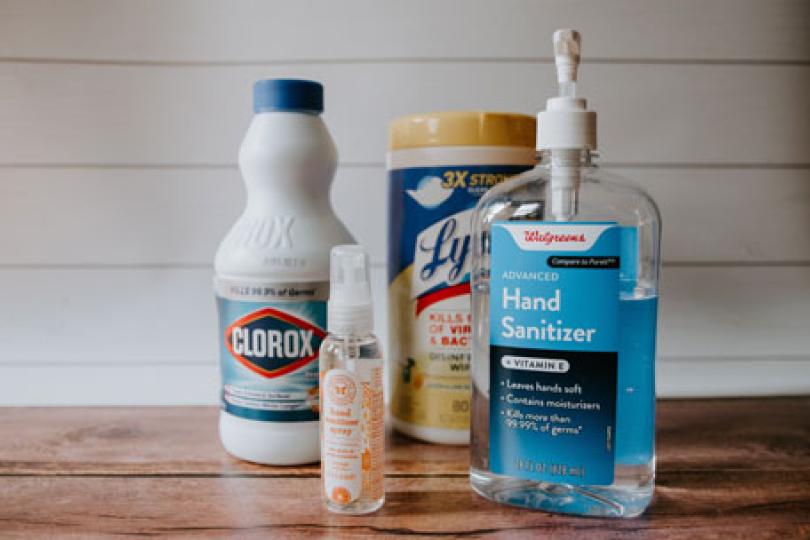Trump undermines health protections
Editor's note: The following opinion piece by Fellow Laura Meyerson and Daniel Simberloff first appeared in the Providence Journal.
The federal government had the foresight and mechanisms in place to minimize the risk of pandemics to human health. However, the Trump administration is placing the nation at risk by systematically undermining these structures and experts associated with them.
The U.S. government defines an invasive species as, “with regard to a particular ecosystem, a non-native organism whose introduction causes, or is likely to cause, economic or environmental harm, or harm to human, animal, or plant health.” The definition includes pathogens, parasites, and organisms that spread them. Thus, disease outbreaks such as COVID-19 are inherently an invasive species issue.
Three U.S. presidents signed executive orders recognizing invasive species as a security concern warranting prevention and mitigation through high-level inter-agency cooperation. These orders directed the operation of a National Invasive Species Council comprising the leadership of 12 executive branch agencies and four components of the president’s office, as well as a non-governmental, multi-stakeholder Invasive Species Advisory Committee.
In 2016, President Obama’s Executive Order 13751 stated that “of substantial growing concern are invasive species that are or may be vectors, reservoirs, and causative agents of disease. ...The introduction, establishment, and spread of invasive species create the potential for serious public health impacts.”
He thus recognized infectious diseases of foreign origin as invasive species and that the Department of Health and Human Services should play a prominent role in NISC by, for example, working with other agencies to report on public health impacts of invasive species.
Invasive species are typically regarded as a nonpartisan issue. However, the Trump administration prevented NISC from meeting and undertaking high-level initiatives, cut NISC’s budget by 50%, terminated ISAC, and greatly diminished the role and size of NISC’s managerial secretariat.
Among other things, the secretariat was preparing the first comprehensive blueprint for rapid detection of and response to invasive species nationwide. If enacted by federal leadership, the blueprint would substantially reduce the risk of disease outbreaks and spread of other invasive species.
ISAC recently released a report addressing invasive species impacts on wildlife health including human health implications and, responding to a request from the office of the secretary of defense, another on the risk of tick-borne diseases to military personnel and outdoor recreationists. It is clear that wildlife commerce and consumption can be a source and major pathway for the spread of human viruses. ISAC played a key role in national disease preparedness and planning efforts.
The Trump administration also dismantled two other coordinating bodies that should be interfacing with NISC during pandemics: the White House National Security Council’s group dedicated to addressing health security issues and the Department of Homeland Security’s pandemic preparedness group.
Safeguarding the U.S. population requires the strategy and will to prevent security breaches rather than react to them post-impact as they become politically inconvenient. We need government-wide coordinating mechanisms that routinely assemble senior leadership for inter-agency priority-setting and programmatic implementation.
It is also imperative to enlist outside experts to provide technical advice that is actionable in the federal context. Such mechanisms prove even more vital when emerging priorities require urgent action by people already sensitized to the issues and trusting one another. Among other things, this prohibits misinformation from limiting public understanding, preparation, and response to potential health emergencies, as has happened with COVID-19.
Is the Trump administration’s failure to implement the duties assigned in Executive Order 13751 and diminishment of the top coordinating bodies for leadership on invasive species due to naiveté or a political agenda?
Either way, the American people are at increased risk. It’s time for Congress to issue a biosecurity act that safeguards the nation, securing structures necessary for scientifically-informed nonpartisan federal leadership. Future administrations could thus be held accountable to prevent needless suffering, deaths and economic impacts already emerging from COVID-19.
Laura A. Meyerson is a professor at the University of Rhode Island and associate editor-in-chief of the journal Biological Invasions. Daniel Simberloff is a professor at the University of Tennessee, editor-in-chief of the journal Biological Invasions, and a member of the National Academy of Sciences. Six of their colleagues nationwide also signed this piece.

